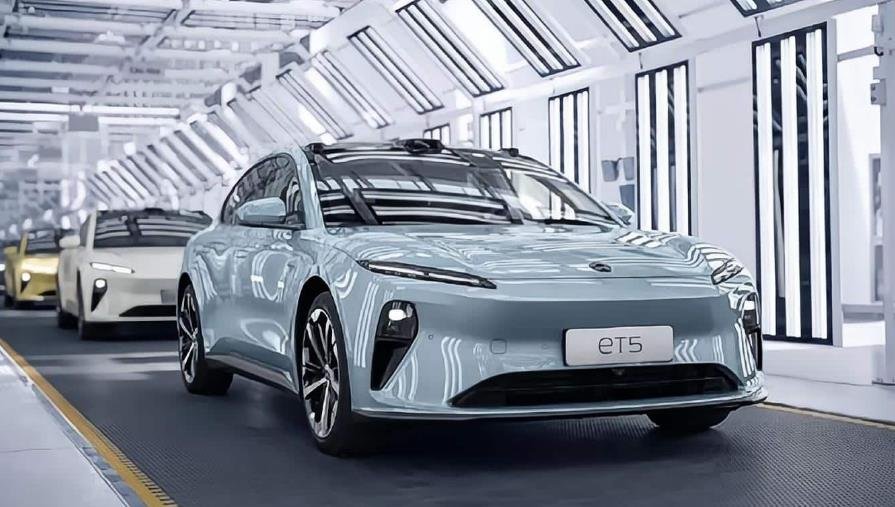Nio, one of the leading electric vehicle makers in China, is planning to buy two manufacturing plants from its partner Anhui Jianghuai Automobile Group Co (JAC) in Hefei, the capital city of Anhui province. The move is expected to help Nio obtain its own production license and exercise more control over its production process, which could improve its operational efficiency and profitability in the long term.
According to a statement issued by JAC on Oct. 20, the state-owned automaker intends to sell part of its assets in the F1 and F2 plants, which are jointly operated with Nio, for a total of 4.58 billion yuan ($641 million). The F1 plant has been producing Nio’s electric cars since 2017, while the F2 plant was built in 2021 as part of the Neo Park industrial park, where Nio’s ET5 model, which is also offered in Europe, is manufactured.

A person familiar with the matter told the National Business Daily (NBD) that Nio’s Anhui unit and a state-owned company of the Hefei government have won the bid for the assets. The person also said that if Nio can obtain independent production qualification as a result, it will be a major positive thing for the company, which will benefit its long-term operation and efficiency.
Nio faces challenges in expanding its production capacity
Nio, which was founded in 2014, has been relying on JAC for contract manufacturing since its inception. The company does not have its own production license, which is required by the National Development and Reform Commission (NDRC) to manufacture and sell vehicles in China. Instead, Nio designs and develops its own vehicles, while JAC handles the production and quality control.
The partnership between Nio and JAC has been extended until May 2024, according to an agreement
By acquiring the plants from JAC, Nio could gain more flexibility and autonomy over its production process, as well as reduce its manufacturing costs and improve its gross margin. Nio could also leverage its own technology and innovation to enhance its product quality and customer satisfaction. Moreover, Nio could apply for its own production license, which could give it more credibility and legitimacy in the market.
Nio pursues its own production plans amid fierce competition
Nio is not the only electric vehicle maker in China that is pursuing its own production plans amid fierce competition and regulatory pressure. Li Auto, another leading player in the sector, acquired a plant from its partner Beijing Pride New Energy Vehicle Technology Co in 2021, and obtained its own production license in June 2021. Li Auto said that the move would help it improve its production efficiency and quality, as well as accelerate its product development and innovation.
Xpeng, another rival of Nio, has also been building its own production facilities in China. The company has two plants in Zhaoqing and Guangzhou, and is constructing a third one in Wuhan. Xpeng said that having its own plants would enable it to have full control over its production process, as well as optimize its cost structure and enhance its profitability.
The trend of electric vehicle makers seeking their own production capabilities reflects the increasing maturity and competitiveness of the industry, as well as the growing demand and expectations of the consumers. As the electric vehicle market in China continues to grow and evolve, Nio and its peers will need to constantly innovate and improve their products and services, as well as their production and delivery capabilities, to maintain their edge and market share.
